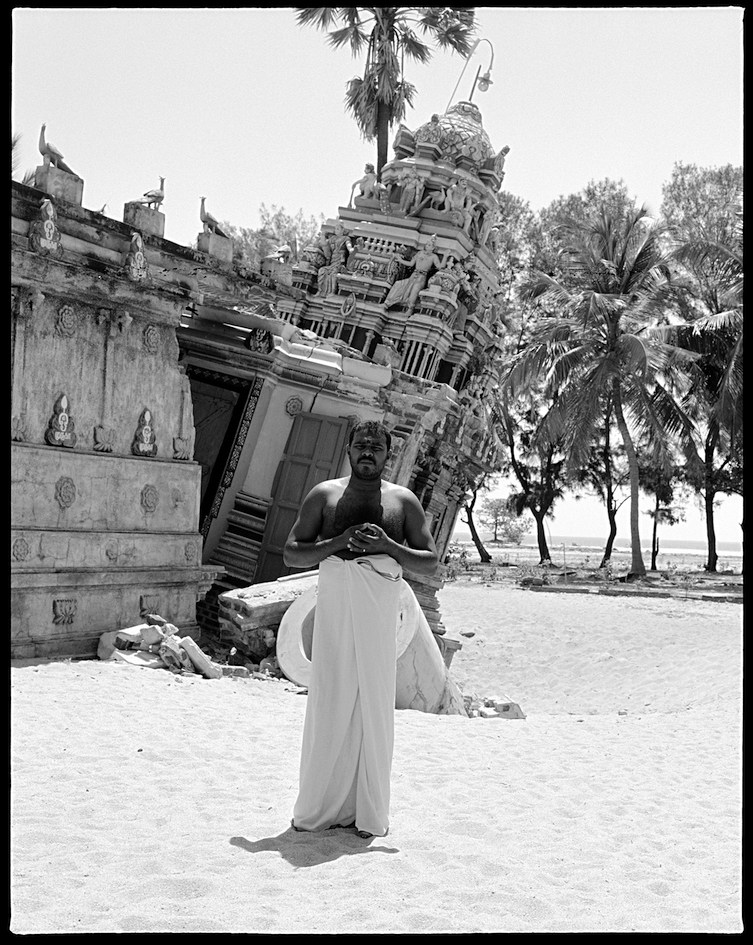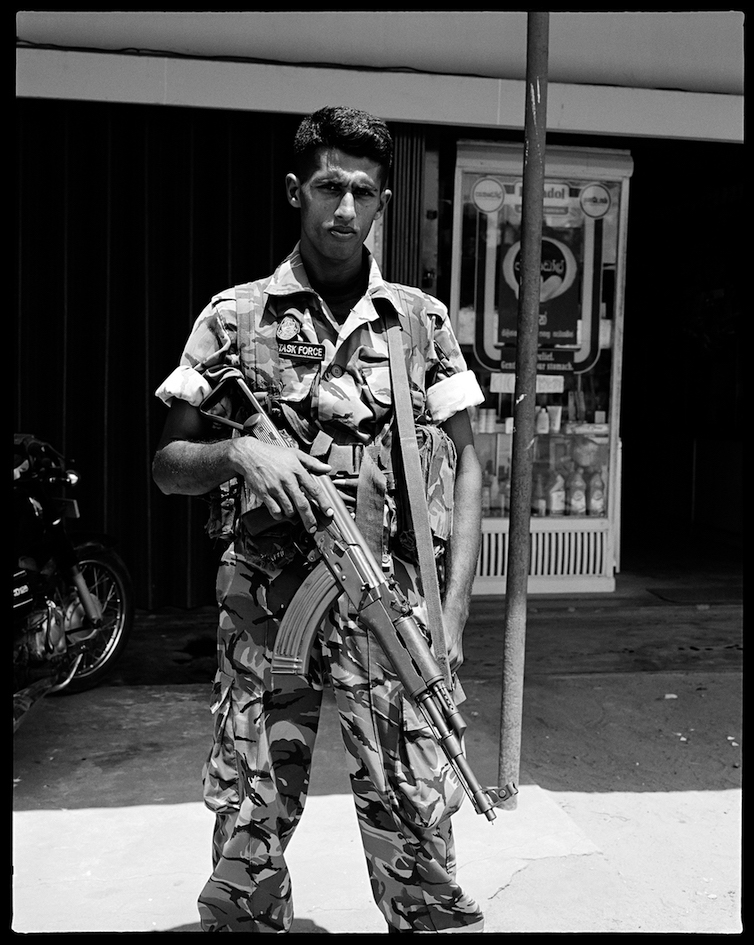A glimpse inside a turbulent period in Sri Lankan history
- Text by Miss Rosen
- Photography by Hunter Barnes

In early spring 2006, American photographer Hunter Barnes traveled to Sri Lanka. He’d gone there to document the devastating impact of the 2004 tsunami that had left more than 35,000 dead – only to arrive as civil war was flaring back up.
The island nation, which achieved independence in 1948, had been embroiled in war since 1983, when the Tamil people in the north and east began their fight for emancipation from the Sinhalese majority. Although a ceasefire had been established in 2002, there was an assassination attempt on a military general shortly before Barnes arrived.

“You could feel the tension in the air,” Barnes remembers after touching down in the capital city of Colombo after a two-day flight. A friend of Barnes met him at the airport with a warning: it was unsafe to travel at night. They waited until sunrise to make the journey.
“As we drove across to the east, the checkpoints became more prevalent,” Barnes says. “Once we arrived in the eastern province, I realised I was meant to document the lives of the people living through this situation day to day.”
In the new book, A World Away (Reel Art Press), Barnes brings together poignant black and white photographs and handwritten notes from his time on the island with children, families, and humanitarian workers banding together to survive the aftermath of natural disaster and resurgence of war. 

Barnes began his work photographing a school for orphans. At the time he was shooting, only 200 of the 700 students made it in due to a military outbreak on the street. But those who arrived were excited to be photographed and share their stories.
Barnes then visited refugee camps funded by the Tamil Rehabilitation Organisation, where people lived in huts made of sheet metal with palm roofs. These huts soared to harrowing temperatures under the equatorial sun. Water and rice were trucked in periodically to the camps.
The photographer noticed things were going from bad to worse. “The tsunami destroyed so many things: families, homes and resources. There was a shortage of food, the fish in the ocean were greatly affected. The drinking water from the many of wells became unsuitable to drink,” Barnes says.


“During the time of the cease fire there was a focus on rebuilding. When the war began again much of what was being rebuilt was destroyed. As more time went on and the war started its resurgence the camps population greatly increased as well as the military presence in the area.”
With the conflict escalating, Barnes had to leave sooner than he planned but he continued to make work, photographing the military, the fishermen, then families, and children he encountered in order to share their story.
With the first open elections soon to come, the violence was escalating. Bombs were getting closer and a girl Barnes knew was shot in the street. Just before he left the country, a preacher said, “Twenty–thirty years ago, Sri Lanka was considered ‘The Pearl of the East.’ Now it’s considered ‘The Hell of the East.’”





A World Away is out now on Reel Art Press.
Enjoyed this article? Follow Huck on Twitter and Instagram.
You might like

In Medellín’s alleys and side streets, football’s founding spirit shines
Street Spirit — Granted two weeks of unfettered access, photographer Tom Ringsby captures the warmth and DIY essence of the Colombian city’s grassroots street football scene.
Written by: Isaac Muk

Remembering New York’s ’90s gay scene via its vibrant nightclub flyers
Getting In — After coming out in his 20s, David Kennerley became a fixture on the city’s queer scene, while pocketing invites that he picked up along the way. His latest book dives into his rich archive.
Written by: Miss Rosen

On Alexander Skarsgård’s trousers, The Rehearsal, and the importance of weirdos
Freaks and Finances — In the May edition of our monthly culture newsletter, columnist Emma Garland reflects on the Swedish actor’s Cannes look, Nathan Fielder’s wild ambition, and Jafaican.
Written by: Emma Garland

Why Katy Perry’s space flight was one giant flop for mankind
Galactic girlbossing — In a widely-panned, 11-minute trip to the edge of the earth’s atmosphere, the ‘Women’s World’ singer joined an all-female space crew in an expensive vanity advert for Jeff Bezos’ Blue Origin. Newsletter columnist Emma Garland explains its apocalypse indicating signs.
Written by: Emma Garland

Katie Goh: “I want people to engage with the politics of oranges”
Foreign Fruit — In her new book, the Edinburgh-based writer traces her personal history through the citrus fruit’s global spread, from a village in China to Californian groves. Angela Hui caught up with her to find out more.
Written by: Angela Hui

We are all Mia Khalifa
How humour, therapy and community help Huck's latest cover star control her narrative.
Written by: Alya Mooro

